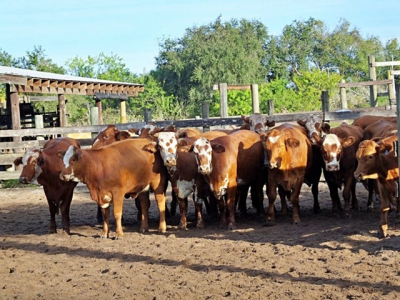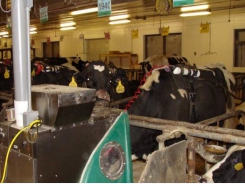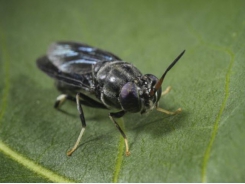Joined up approach to antimicrobial resistance in US cattle production urged

Members of both the veterinary and agricultural production worlds need to work together to address antimicrobial resistance in cattle production, said Brian Lubbers, director of clinical microbiology, Kansas State University veterinary diagnostic laboratory.
He was presenting on the topic during One: the Alltech Idea’s Conference last month in Lexington, Kentucky.
Lubbers said it was important to tailor antimicrobial stewardship for beef production, given the fact it is very different to pork and poultry farming.
“There is a myth about the concept of a universal antimicrobial stewardship program – that I can sit in my office in academia and develop a program that will fit everything out there in the real world,” he said. “That does not exist – I think what our goal needs to be is the development of some sort of framework that can be taken out and people can tailor it to their specific operations.”
An additional challenge for producers is understanding when the use of antibiotics is most critical or where antibiotic use could be stopped without compromising animal health, he said. However, there are concerns about the “efficient adoption” of new technologies following the proliferation of antibiotic alternatives without enough data, he added.
In poultry, there has been a push on in the US to use no antibiotics at all, but the cattle industry has not yet reached a point where that can be an option without potentially compromising the health of the animals, he said.
“If we had a truly disruptive technology that was equal to antimicrobials, without the resistance concerns of antimicrobials, the beef industry would be willing to adopt that – but we don’t have that right now.”
He did acknowledge the interesting research going on around the gut microbiome and its relationship to health.
Collection of data regarding the use of antimicrobials during production is another weak point, he said.
“There is going to be great need for improved record keeping [systems] – ones that go beyond just the economic data preventing antibiotic residues, we’re going to have to have systems that will be flexible enough that we can pull data out and manipulate it to get very quickly to some of the metrics that we’re going to be asked to apply.
"The only way we can know that we’re improving is if we have the ability to evaluate interventions … whether that’s prevention or treatment from an antibiotic stewardship perspective,” he said.
Có thể bạn quan tâm
Phần mềm

Phối trộn thức ăn chăn nuôi

Pha dung dịch thủy canh

Định mức cho tôm ăn

Phối trộn phân bón NPK

Xác định tỷ lệ tôm sống

Chuyển đổi đơn vị phân bón

Xác định công suất sục khí

Chuyển đổi đơn vị tôm

Tính diện tích nhà kính

Tính thể tích ao hồ



 MAP protein may aid battle against Johne's disease
MAP protein may aid battle against Johne's disease  Netherlands moves forward on 'insects as feed' research
Netherlands moves forward on 'insects as feed' research